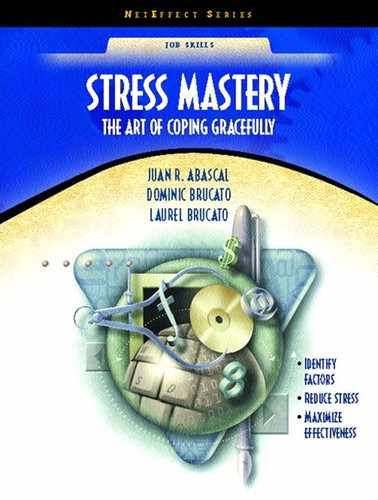Stress and Illness
Do you believe that stress can make you sick? If you are like most people, you would answer with a resounding “YES!” When we ask people this question in our workshops and classes, all of them believe that stress can affect their emotional well-being, and the majority realize that it can lead to physical illness. Unless you have been living off the planet for the last few years, you have had some exposure to the fact that stress can and does have deleterious effects. However, had we asked this question just twenty-five or thirty years ago of people in general or even a group of health professionals, the majority would probably have denied the relationship between stress and our health. Back then we were just emerging from the era of infectious diseases, when we believed that illnesses were caused by exposure to germs and bacteria, and that the way to keep healthy was to create vaccines and medicines to combat these external agents. At that time, to have considered the notion that stress could lead to illness would have been avant-garde thinking.
Then Thomas Holmes, M.D., a professor at the University of Washington School of Medicine, began doing research on the effect of changes (that is, stress) on our physical and emotional well-being. Together with Richard Rahe, Dr. Holmes developed a questionnaire measuring life changes and set out to study whether there was a relationship between the number, seriousness, and pervasiveness of changes, and our frequency of illness (Holmes & Rahe, 1967). Using army personnel, because they were a captive audience and their progress could be followed easily, Holmes and Rahe demonstrated that the questionnaire could help them predict with remarkable accuracy those soldiers who would get ill within the next two years and those who would remain healthy. We suggest that you complete and score the Holmes-Rahe Life Readjustment Scale to determine your own level of stress as measured by this inventory.
But the Holmes-Rahe questionnaire has a major flaw. Do you know what it is? It fails to take into account individual differences in our abilities to cope with the changes and demands of our lives. In the years since the Holmes-Rahe scale was developed, a number of other inventories have been designed attempting to measure a variety of factors associated with stress. One that we have found particularly useful is the computerized Brief Stress Inventory, which pinpoints your particular sources of stress and the current effects these are having in your life. In addition, it identifies your present resources for dealing with stress, along with specific suggestions for enhancing your ability to cope.
